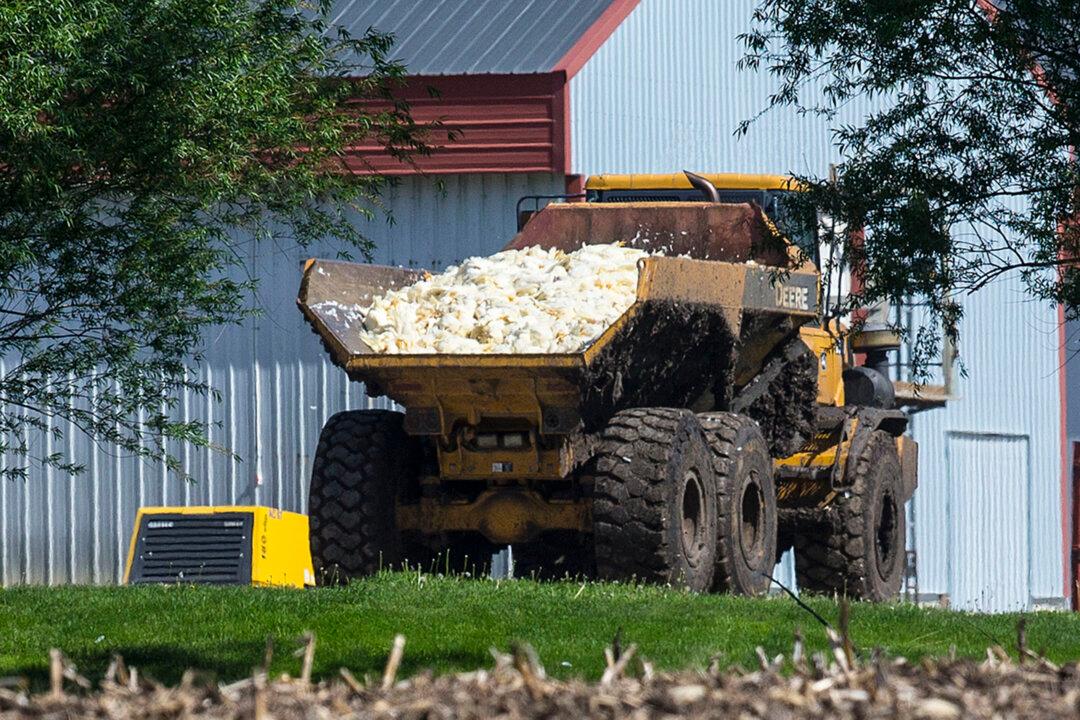DES MOINES, Iowa—Iowa agriculture officials announced two more bird flu outbreaks in commercial flocks on Tuesday that will require the killing of more than 1.5 million hens and turkeys.
One of the new outbreaks will lead to the killing of 1.5 million chickens at an egg-laying farm in Guthrie County, about 60 miles west of Des Moines. The other was at a turkey farm in Hamilton County, about 65 miles north of Des Moines, where 28,000 birds will be killed.





